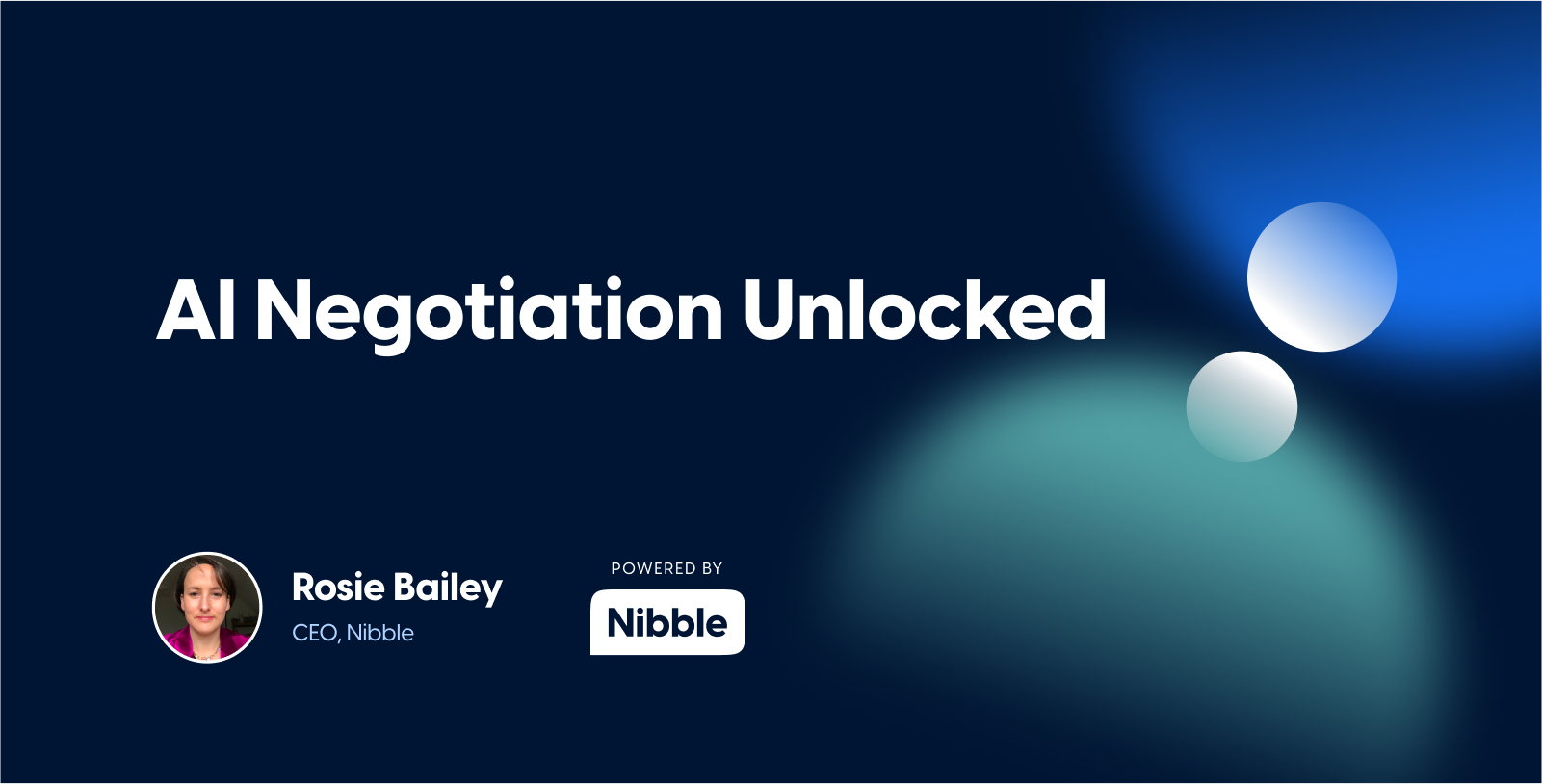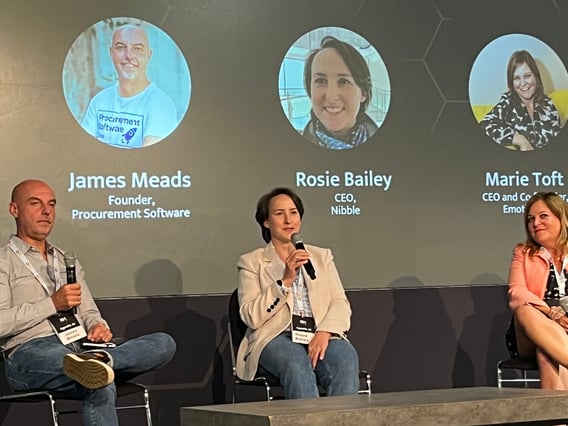
Last week, I joined procurement leaders at a KonnectHouse event for procurement insights in London to talk about AI agents. Although everyone is talking about agents, I’m not convinced many people have managed to implement enterprise-changing agents at scale yet – but why?

If there was one key learning it was this – get out more! In person events are the BEST – especially small ones like this focused on roundtables and networking. We had just a handful of vendors / sponsors so it was mostly practitioners talking to practitioners (and let’s be honest, vendors pay for lunch so we gotta love them a bit).
Even the so-called experts in the room are learning and, although some businesses are more mature in their processes and tech stack than others, no one feels like they have made it yet! The main thing was to encourage others to “just start”.
A few big themes stood out.
⟡ Sell the Vision
The energy in the room was clear and everyone was excited about where AI Agents can take us. Perhaps we are a self-selecting bunch, we are the people who choose to attend these events are who WANT transformation (even if our corporations sometimes feel like they are holding us back) but I heard loud and clear: you need a mandate for change.
Every successful case study we heard from the main stage – from GSK to Deliveroo to Invesco – traced their progress back to top-level commitment and a mandate to change. At GSK, Nitin Kapoor the CEO is publicly backing AI adoption across the organisation and he encouraged procurement teams to align their transformation roadmap with corporate goals for better adoption.
At Deliveroo, Rob Turner didn’t automatically win hearts and minds for AI, just because they are a tech-first company – he still had to build a case for a platform-level transformation. Clare Cassano from Invesco explained how they built orchestration into the greenfield transformation plan from day one. She was excited by the pipeline functionality this offered, meaning that all stakeholders in the organisation, not just procurement professionals, could see their whole procurement process and understand the stages required for approval and onboarding. This is the foundation for more sophisticated options via agents etc.
Outside the auditorium over coffee, conversations were pragmatic, firmly grounded in the real world. How do you sell transformation when there’s no budget? When senior leaders don’t see the need? As one panelist put it with refreshing honesty: “Your data will never be ready.”
We all know you need to be a storyteller, and of course this is just as true in procurement leadership as anywhere; however, it feels like an inherent risk if you are painting a picture of a system so broken it undermines your credibility (don’t say…”30% of my data is crap!” or “We are lucky if 40% of spend is captured in the system!”). It’s sometimes hard to articulate WHY you need to invest in the basics first, before you can reap the rewards from AI or the latest functionality and also how long this takes to implement.
The challenge is balancing bold multi-year vision with quick wins to build confidence and buy-in.
Rethinking Procurement Processes with Agents
AI agents are not there to simply follow today’s processes.
Procurement processes aren’t inherently linear—they’ve only been forced that way by legacy systems. Orchestration now allows us to design flows around what’s possible, not just what’s permitted. As Simen Wefald from BT Sourced put eloquently, we can now move from a linear process to something much more fluid.
Nitin Kapoor gave a great example of not treating contracts as stagnant documents, only to be referred back to in the event of a dispute. What happens if you revisit it regularly (using agents) to check you follow through on the terms which offer you a volume based rebate or other obligations due to the purchaser. These are often hard won through the initial contract negotiation, and you don’t want them forgotten! Now LLMs can assimilate pdfs, images, diagrams as well as text, it is much easier to do this now, using complex, unstructured data, than it used to be just a year ago.
Daniel Hulme was a huge energy on the panel and debunked a ton of myths and busted jargon – he was brilliant! He thinks we need more guardrails than ethics in AI, that the current LLMs are rubbish compared to what we should expect next year and suggested that agents need governance, specifically in the scenario they OVER-achieve. If an agent over-achieved its target, what might be the unintended consequences? Could this be as disruptive / problematic / impactful as them not achieving their target in the first place? I loved this, a total reframing of risk management thinking…
ROI and Pricing Models
Then there’s the economics. AI is expensive to build and data hungry and – although we all have Chat GPT for free today, I think its got to get more expensive in the future. Think of Uber and what happened when VC capital stopped subsidising cheap taxis for us?
There were some sceptical / concerned questions from the audience about how much all this will cost. Will procurement teams now pay double, once for the software licences and then again for the AI feature or for an agentic platform? As Lance Younger cautioned, pricing models for AI tools are still evolving (and I think Lance meets 100’s more AI suppliers in a month than most of us will do in our lifetimes!) but he thinks they will settle in the next year or so.
Paying a “full-time equivalent” cost of an agent (i.e. how much would it cost me to have a human team do this work?) might sound neat, but it’s unrealistic: no AI tool directly replaces one human role. Instead, the value comes from speeding up processes and automating specific tasks. The ROI question needs to go deeper than simple headcount substitution.
People First
For all the talk of data, processes, and platforms, it always comes back to people. Conferences like this matter because they give procurement leaders the courage to experiment, share what’s working, and push for change in environments where it can feel daunting to shake things up.
We need more entrepreneurial thinking and knowledge sharing to maximise what we can all achieve. It can be as simple as sharing prompt ideas and use cases and quick wins.
Find out more from Nibble’s experience negotiating 100,000 times a month here.
Interested in Nibble?
